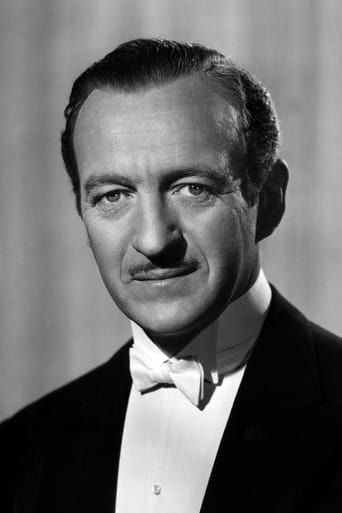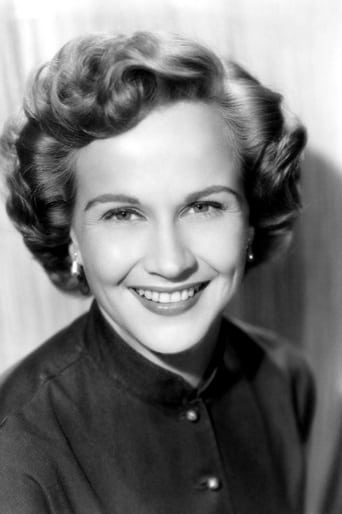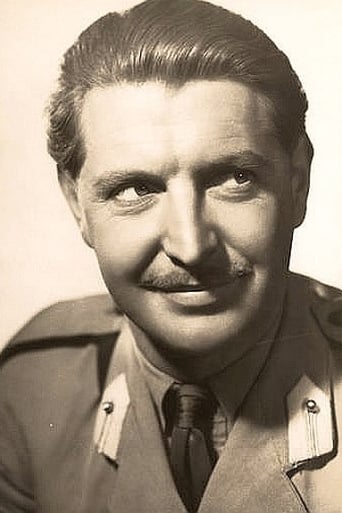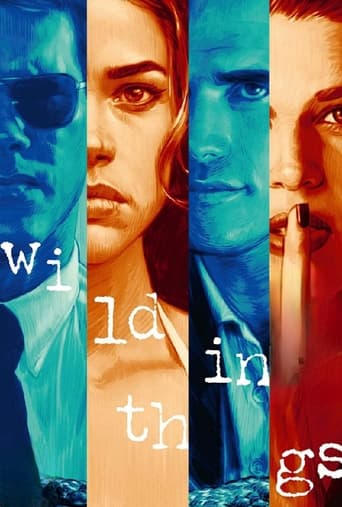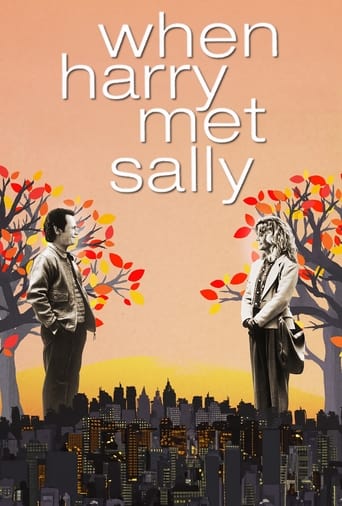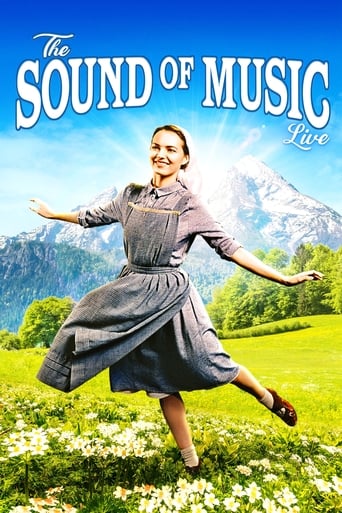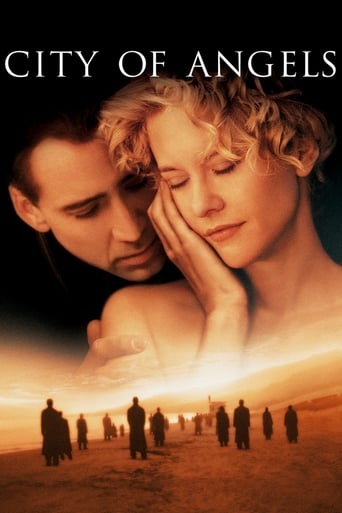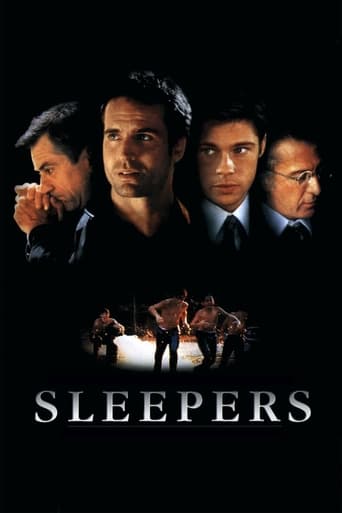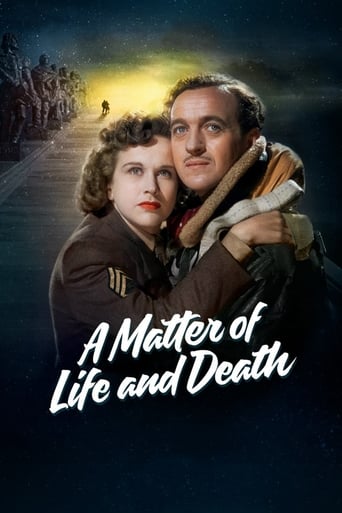
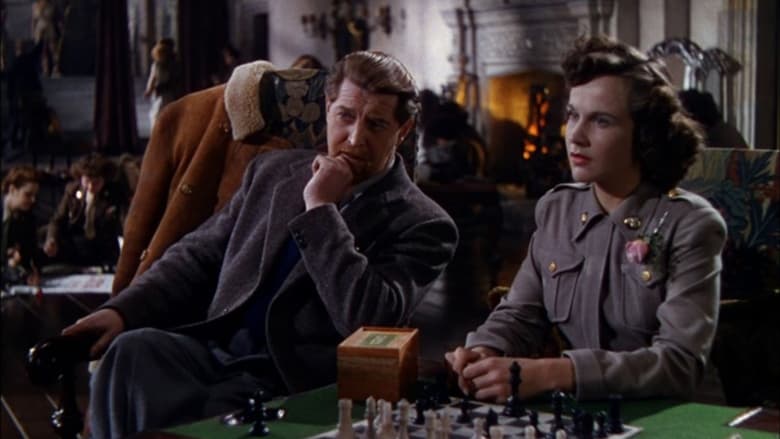
A Matter of Life and Death (1946)
When a young RAF pilot miraculously survives bailing out of his aeroplane without a parachute, he falls in love with an American radio operator. But the officials in the other world realise their mistake and dispatch an angel to collect him.
Watch Trailer
Cast


Similar titles
Reviews
While the script itself has been sort of done in "Heaven Can Wait" and "Here Comes Mr. Jordan", this one is done better than either of those films. David Niven became a star with this film. It is easy to see why. This is a very good film.The film starts with Niven alone on a Lancaster Bomber on it's way down. With the exception of one dead person, everyone else has bailed out. Niven has not because he does not have a parachute. For some reason he gets a radio call from a woman who he tells his situation too and then he bails out rather than burning with the plane.Here this plot becomes more complicated as he meets the girl he fell in love with on the radio as he is still alive after jumping out. It seems he was supposed to die but because of the fog, he did not.This film uses black and white and technicolor to major advantages. It has some special effects that are amazing considering when the film was made. The supporting cast is great. It started filming on V-Jay day, and because of that the war sequences seem more real than many films.The script while not perfect, does a good job of balancing the story between Heaven and Earth. It doe it better than the other films I mentioned and gets rid of the hokey desire of the dead person to want to step into another persons shoes. It is stronger because it goes to the mode of airman Niven getting a trial to decide if he should come to heaven now (after their foggy mistake to end his live missed) or if he should stay on earth with his new found love.It works better, and that is simply why this is a great film.
Wow just wow, that's my reaction after watching this.to be fair this is one of the best movies i have seen in my lifetime.fantasy movies are always enchanting to watch but they don't always have this type of engaging story and screenplay.the craft in that surrealistic moments are awesome.this is placed 20th on the British films institute list of best 100 British films.in 2000 a poll by the magazine total film of 25 critics named a matter of life and death the second greatest British film ever made. the visual beauty is so high that you cant take your eyes off it. the trial scenes are done with lot of sly humour and and also a part of pro American propaganda.this is one hell of a Christmas show .highly recommended to every true movie lovers. P.S. THIS IS MY FIRST REVIEW SO...........
My 14th favourite film of all time, this is an absolutely wonderful fantasy film. It was made in order to help foster good relations between the US and UK in the immediate aftermath of the Second World War but the fact that it is so well remembered and so well loved 70 years later is indicative of its quality. The film never specifically states whether Peter Carter's visions of the Other World are real and it offers certain evidence to suggest that they are merely figments of his imagination. However, the very fact of his survival after jumping out of a plane without a parachute would tend to suggest that they were. In any event, I have no doubt that they were entirely real. Notably, the Other World is never specifically referred to as being Heaven and its residents belong to many different faiths. The film was released in the US under the title "Stairway to Heaven" over the objections of the filmmakers. The script is beautifully written by Michael Powell and Emeric Pressburger and is full of marvelous dialogue. Their direction is of the same high calibre. It was superbly shot in glorious Technicolor, depicting our world in colour with Three-Strip Technicolor and the Other World in black-and-white with Dye-Monochrome. The transitions between the two worlds are very well done and the Other World's distinctly modernist sets are lovely. The special effects, particularly the celestial stairways, are fantastic for their time.The film stars David Niven in one of his best performances as Squadron Leader Peter Carter, who due to an error in the Other World is not killed in World War II on May 2, 1945 as it should have been. The opening scene in which he speaks to June over the radio is one of the best scenes in the film. In many respects, it tells us all that we need to know about Peter: he is an extremely intelligent, brave, romantic soul who does not fear death but at the same time would rather live. He faces what he assumes to be his death with an impressive level of calm, even making jokes. When he survives his fall from his Lancaster bomber, he is astonished as he, understandably enough, did not even entertain the notion that he might survive. June, played very well by Kim Hunter in one of her first films, is even more astonished than he is as she never expected to have the pleasure of meeting him in person. They fell in love over the course of their few minutes speaking over the radio and this change in his circumstances provides Peter with a grounds for appealing his death sentence, as it were. Romantic films in which the leads do not have good chemistry are pretty worthless and, thankfully, Niven and Hunter's chemistry is first rate. You never doubt for a moment that they are in love. This becomes particularly important, if not downright crucial, towards the end of the film. Peter is the quintessential old-fashioned English gentleman - meaning that Niven was perfectly cast - while June is a (by 1940s standards) very modern young American woman. Often in films such characters do not mesh particularly well and this is used to comment on the differences between the UK and the US. In this film, however, their love is representative of the fact that British and Americans have more in common than they might think at first glance. The excellent trial scene illustrates this as well. It does not hesitate to comment on some of the British Empire's darker moments, albeit somewhat implicitly, and the American Abraham Farlan's jingoistic rhetoric is suggested as being little more than errant nonsense. The message is that both countries can work together for mutual benefit and the benefit of the rest of the world, a post-World War II ideal that was perhaps not as well implemented as it could have been.Roger Livesey gives an excellent performance as Dr. Frank Reeves, one of the leading neurologists in the UK and the world. A close friend of June, he does not believe Peter's claims about the Other World but, more importantly, he believes that Peter does believe them. As such, he fears for Peter's sanity if he loses his trial in the Other World. When he is killed in a traffic accident, he becomes Peter's defence attorney and presents many convincing arguments on his behalf even though he knows little of the law. Frank is perhaps the most realistic character in the film and this serves to ground it. Raymond Massey receives prominent billing but does not actually appear until 1 hour and 19 minutes into the film. He is extremely effective in the role of the prosecutor Abraham Farlan, the first American killed in the Revolutionary War who despises the British. He argues that the British and Americans are temperamentally unsuited to forming lasting relationships, except in 1 in every 10,000 cases, and cites numerous examples from British and world history to support his anti-British sentiments. However, law may be the strongest force in the universe but love is the strongest force on Earth. In a rather bizarre matter of life and death, Niven and Massey died on the very same day: July 29, 1983.Of the other cast members, the strongest is Marius Goring, who is hilarious as Conductor 71, a French aristocrat who was guillotined in 1790 and missed Peter in the fog over the English Channel. The film also has nice performances from Robert Coote as Bob Trubshaw, Abraham Sofaer as the Judge, Bonar Colleano as an American pilot and Kathleen Byron as an angel. Although he only has one line, the 23-year-old Richard Attenborough makes one of his first film appearances as a recently deceased English pilot.Overall, this is a sublime film on love, life, death and the universe. They don't make 'em like this anymore!
Being intended as over the top, it's boosted blandness; meantime, Goring rehearses for the Pimpernel, does a Pimpernel rehearsal, and his performance here, if delightful, is a masque. So, there is an afterlife plot, and a medical plot, and an extravaganza, but no romance, and it's precisely the absent romance that should of driven the whole thing, as we had to see Livesey being clever and playing tennis, and riding a bike, and Niven bringing alcohol in a tin bottle to a picnic, and being ill, and quoting the ancients, as an accomplished scholar and poet that he is, and the departed quarreling. And if the nonsense could of been charming, it is only when handled by Goring or by Massey, who understood the nature of the extravaganza; Niven has to look helpless and menaced, and the physician looks like a crook (but the medical plot as written couldn't of been funny and charming, anyway). P. and P. made an over the top movie that can't overcome the blandness of its script and the inefficiency of some of the actors, the idea ought have been to make the audience care about the pilot in love, about the pilot as lover, and instead we get table tennis and a summary of the hostility between the Yankees and the British (with jazz as the equivalent of mumbled English), and so the inherent blandness of a cheap story is boosted; it quickly becomes a movie about illness, nursing and the debate between Yankees and the British (also a chance for the hypocritical moment of Britain judged by the world, as if, in '45, the British felt despised by the whole world, and accused by everybody, a very British hypocrisy). Livesey and Niven were outrageously miscast. The pilot is supposed to be a scholar and a great poet, and also a consummate man of the world, and Niven acts as if he was playing a shopkeeper, and the idea of the alcohol at the picnic came across as in bad taste; the saintly, righteous physician shows up as a judge of poetry and as a biker, and Livesey gives a phony performance, heartless and emotionless. Attenborough, young, is recognizable. I welcomed Goring, as the celestial go-between, and I enjoyed Massey's role. Kim Hunter is the operator. But in a movie where expressing love, showing it, was essential, Niven hasn't much to offer (and most of the storyline is about him being nursed), it's an emotionless movie, derived from the silliness of having a survivor declaring that, a day after meeting a woman, he has found his love (and the pilot is a tough chap, who boasts an enviable experience with the other sex). It may be so, but why? Niven looks like a hypocrite runaway scoundrel pretending to be a bland office worker, instead of the tough, experienced and worldly pilot; he should of gone with Goring's joviality and humor, and for most of a storyline meant to assure, to convince a celestial court of the truth of his love, he looks ill and upset. I cared neither for their love, nor for his survival. Goring and Massey are very good and give the right impression of what this extravaganza's style needed. The unlikable Livesey proved extremely annoying, at 1st as the patronizing, fatherly, wise physician, then as the defense counselor; his plea has been intended as uplifting. His role was silly as well, with the slapdash plea about love and law. The part was phony, and the acting was phony. Apparently, much was made of the table tennis; I don't know why. Do you? (But when 'Get Carter' and 'A Matter ' are the best British movies ever in a critics' poll, this shows the dire state of the trade .) The physician's death becomes a trifle, not to mention a happy occurrence since his patient gains such a powerful defense on the afterlife, the force of the RAF pilot's newfound love is taken for granted, since not much in the script or acting tries to prove it; the script rings hollow. Another script on the afterlife by guys who don't think much of the afterlife: the perspective of the enlightened Western post-Christian guys.


